
2017 Robert J. Morgan
All rights reserved. No portion of this book may be reproduced, stored in a retrieval system, or transmitted in any form or by any meanselectronic, mechanical, photocopy, recording, scanning, or otherexcept for brief quotations in critical reviews or articles, without the prior written permission of the publisher.
Published in Nashville, Tennessee, by Thomas Nelson. Thomas Nelson is a registered trademark of HarperCollins Christian Publishing, Inc.
Published in association with Yates & Yates, www.yates2.com.
Thomas Nelson titles may be purchased in bulk for educational, business, fund-raising, or sales promotional use. For information, please e-mail SpecialMarkets@ThomasNelson.com.
Unless otherwise noted, Scripture quotations are taken from the Holy Bible, New International Version, NIV . Copyright 1973, 1978, 1984, 2011 by Biblica, Inc. Used by permission of Zondervan. All rights reserved worldwide. www.zondervan.com. The NIV and New International Version are trademarks registered in the United States Patent and Trademark Office by Biblica, Inc.
Scripture quotations marked KJV are taken from the King James Version. Public domain.
Scripture quotations marked THE MESSAGE are taken from The Message. Copyright by Eugene H. Peterson 1993, 1994, 1995, 1996, 2000, 2001, 2002. Used by permission of Tyndale House Publishers, Inc.
Scripture quotations marked NKJV are taken from the New King James Version. 1982 by Thomas Nelson, Inc. Used by permission. All rights reserved.
Scripture quotations marked NLT are taken from the Holy Bible, New Living Translation. 1996, 2004, 2007, 2013 by Tyndale House Foundation. Used by permission of Tyndale House Publishers, Inc., Carol Stream, Illinois 60188. All rights reserved.
Scripture quotations marked T HE V OICE are taken from The Voice. 2012 by Ecclesia Bible Society. Used by permission. All rights reserved. Note: Italics in quotations from The Voice are used to indicate words not directly tied to the dynamic translation of the original language but that bring out the nuance of the original, assist in completing ideas, and... provide readers with information that would have been obvious to the original audience (The Voice, preface).
ISBN: 978-0-7180-8337-3
ISBN: 978-0-7180-8986-3 (eBook)
17 18 19 20 21 DSC 6 5 4 3 2 1
To Jordan
Meditation is a lost art today, and Christian people suffer grievously from their ignorance of the practice.
Meditation is the activity of calling to mind, and thinking over, and dwelling on, and applying to oneself, the various things that one knows about the works and ways and purposes and promises of God. It is an activity of holy thought, consciously performed in the presence of God, under the eye of God, by the help of God, as a means of communion with God.
J. I. P ACKER IN Knowing God
My eyes stay open through the watches of the night, that I may meditate on your promises.
P SALM 119:148
M editation is not new, and it is not new age. God, not the gurus, devised it, and its based on the Bible, not on Buddha. Biblical meditation is an antidote to the unprecedented stress of our age. In a world where everyone is overwhelmed and undervalued, our survival, sanity, and saintliness depend on reclaiming the lost art of biblical meditation. This habit can dramatically lessen your anxiety in life, reduce your stress, bring new success to your days, and leave you with ocean depths of inner peace.
There are many references to meditation, pondering, and thinking in the Bible, encouraging us to engage our thoughts with His Word. In fact, the words meditate and meditation occur 21 times in the Bible; the words think, thinking, and thoughts, 252 times. Mind is mentioned 163 times, and the word ponder is found 9 times. Gods approach to mindfulness is to have a mind full of His Word. Thats why the Bible says:
- Let the word of Christ dwell in you richly (Colossians 3:16 NKJV ).
- Let this mind be in you which was also in Christ Jesus (Philippians 2:5 NKJV ).
- Let the words of my mouth and the meditation of my heart be acceptable in Your sight (Psalm 19:14 NKJV ).
If youre a bit allergic to meditation, well... get over it. Bible lovers neednt apologize for advocating meditation, for some of the greatest heroes of the faith modeled it for us:
- In the age of the patriarchs, Isaac went out at dusk to meditate in the fields (Genesis 24:63).
- The Lord told Joshua about the Law of God: Meditate on it day and night.... Then you will be prosperous and successful (Joshua 1:8).
- The Psalmist pictured those who meditate day and night as fruitful trees by rivers of water (Psalm 1:23).
- Jeremiah said, When your words came, I ate them; they were my joy and my hearts delight (Jeremiah 15:16).
- The Virgin Mary treasured Gods words and pondered them in her heart (Luke 2:19).
- Jesus advised His followers to hear the word, accept it, meditate on it, act on it, and bear fruit (Mark 4:20 T HE V OICE ).
- The apostle Paul told us to think about things that are true, noble, and gracious, and to meditate on those things (Philippians 4:8, see T HE M ESSAGE ).
- The writer of Hebrews told us to fix [our] thoughts on Jesus (Hebrews 3:1).
Meditation is a habit recommended in the Bible; yet, whenever I bring up the subject, some people look at me as if Id suggested they jaywalk across a busy street. Theres a reason for the confusion. Modern meditation, as it is commonly viewed, is not biblical meditation. In recent years, New Agers have hijacked the habit, and I was actually there when it happened. One day, in 1970, as I walked across the quadrangle of the college I attended in Bristol, Tennessee, I heard exciting news. Maharishi Mahesh Yogi was comingor maybe he was sending someoneto teach us Transcendental Meditation (TM). When the day came, we packed the room for the mysterious robed man, and he taught us a few rudimentary TM techniques. He told us to sit properly, breathe deeply, and empty our minds. While interesting, the swami lost me somewhere between karma and mantra, and I didnt fall into Zen.
The next year I transferred to another school, Columbia International University, where I met a group of peoplethe Navigatorswho also extolled the value of meditation, but they viewed it differently, as a biblical habit. They believed we should constantly memorize, visualize, and personalize Gods Word. The Navigators illustrate this point using the image of the human hand: First, getting a grip on Gods Word requires the four fingers of hearing it, reading it, studying it, and memorizing it. But the thumb that strengthens the grip is meditation.
Once we have a grip on the Bible, our feet go into action, putting into practice what were learning.

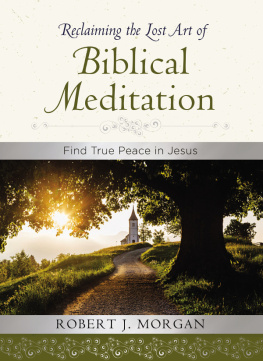
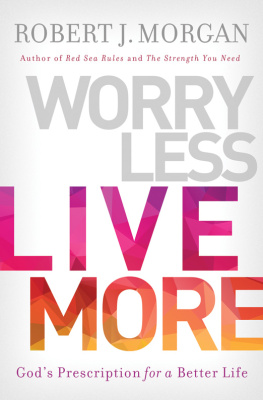

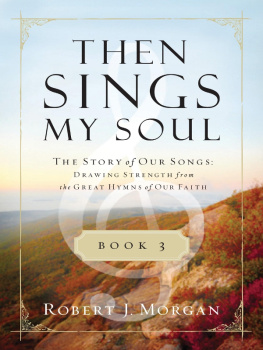

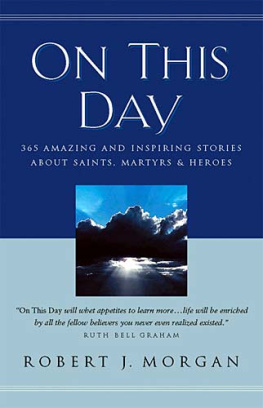
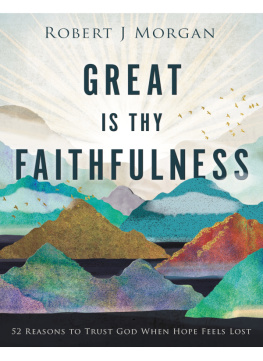
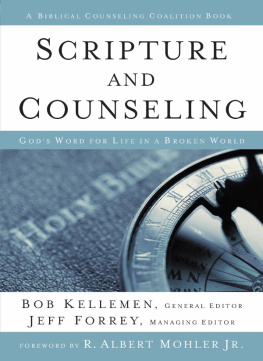

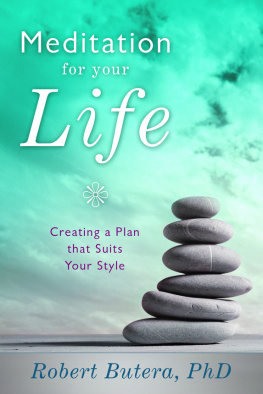
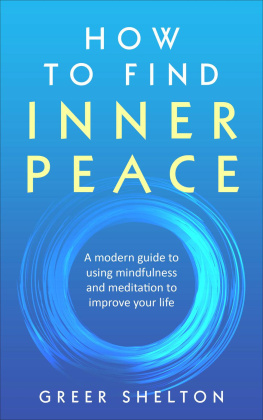
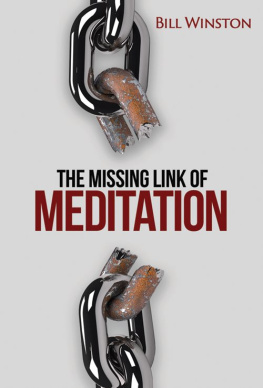
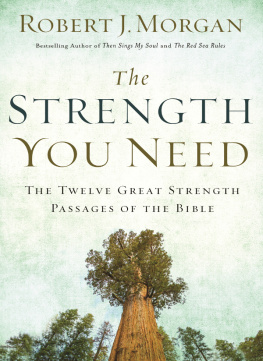
![Scott Hahn [Inconnu(e)] - Scripture Matters: Essays on Reading the Bible From the Heart of the Church](/uploads/posts/book/134760/thumbs/scott-hahn-inconnu-e-scripture-matters-essays.jpg)




